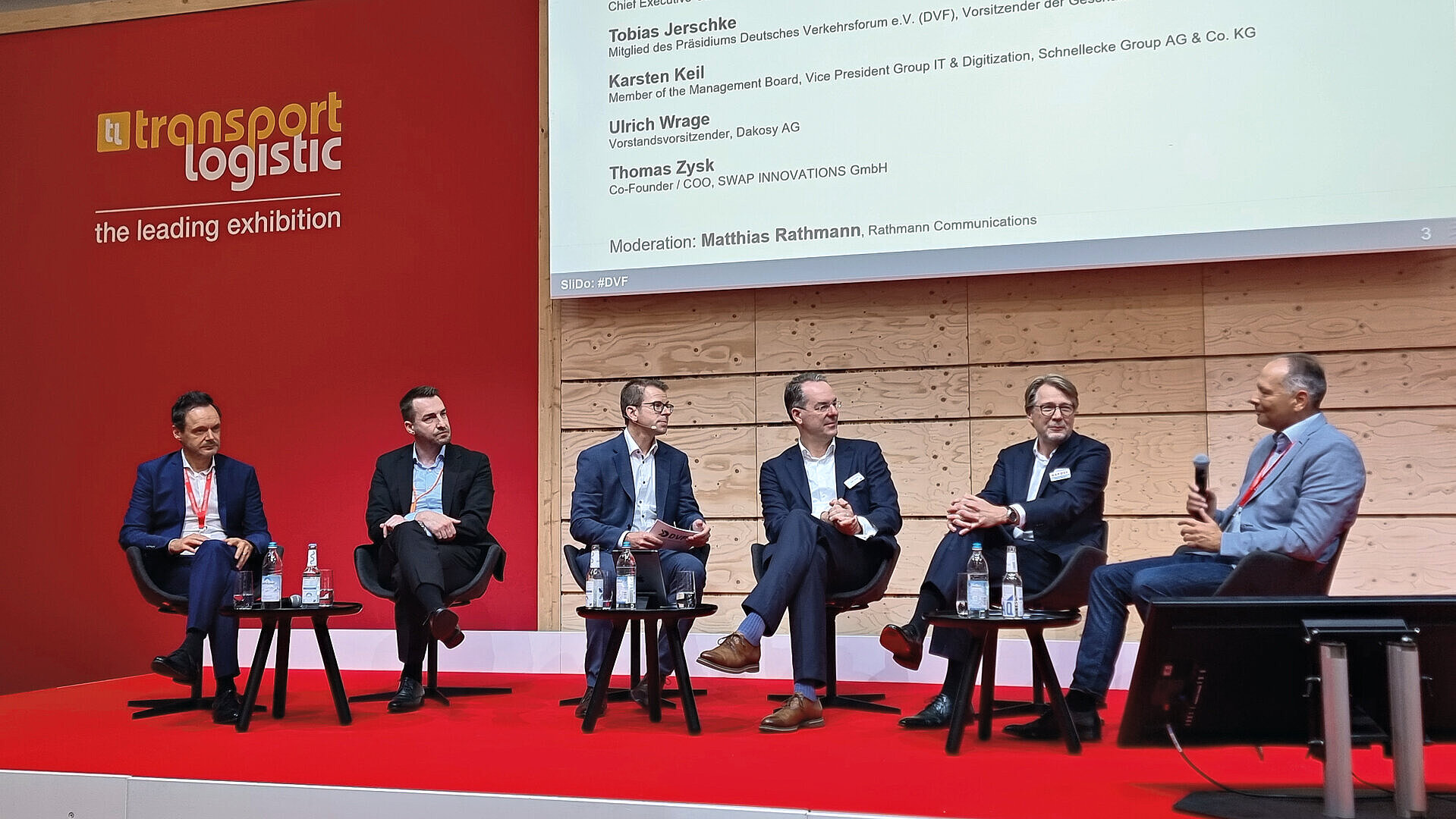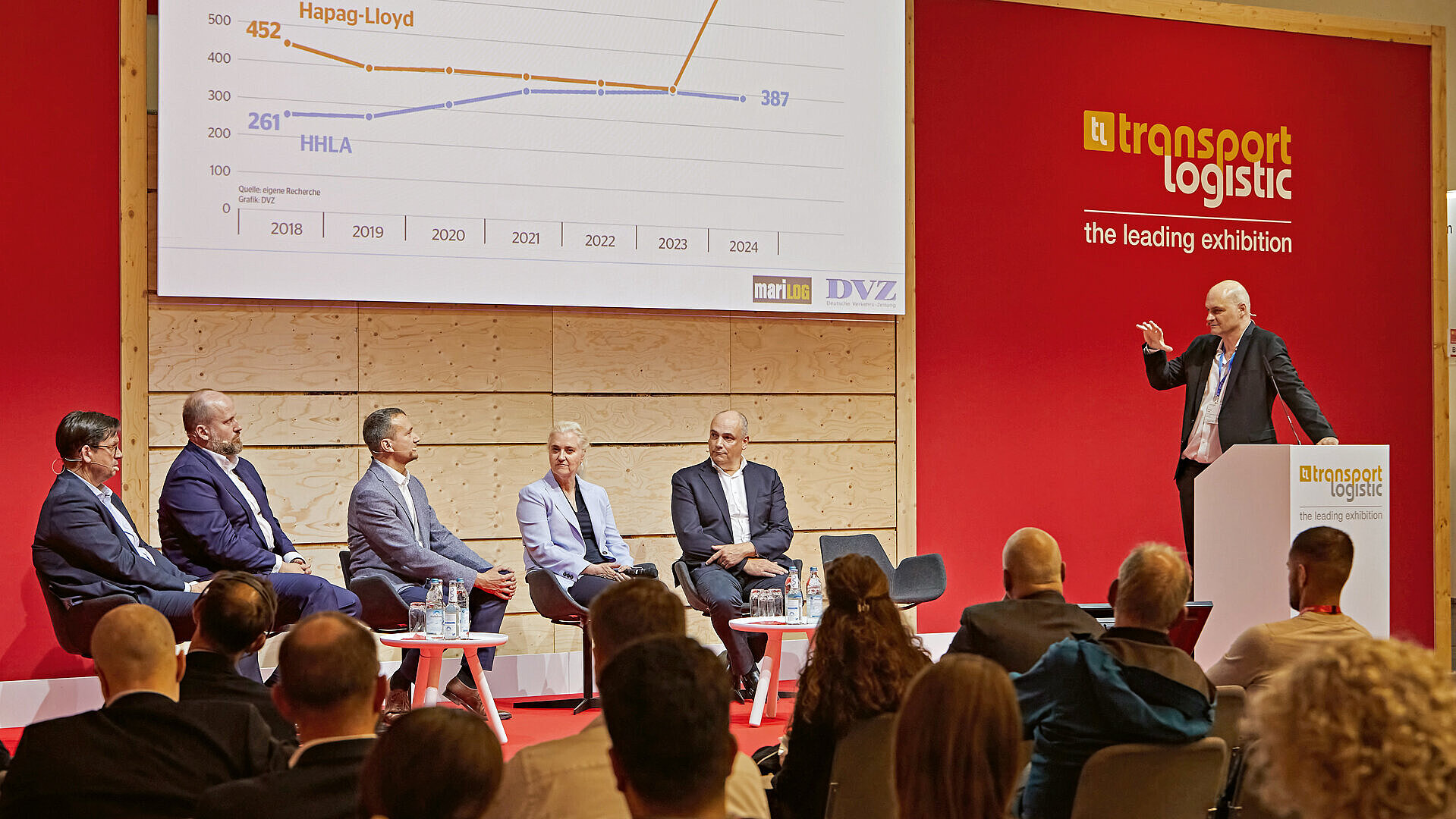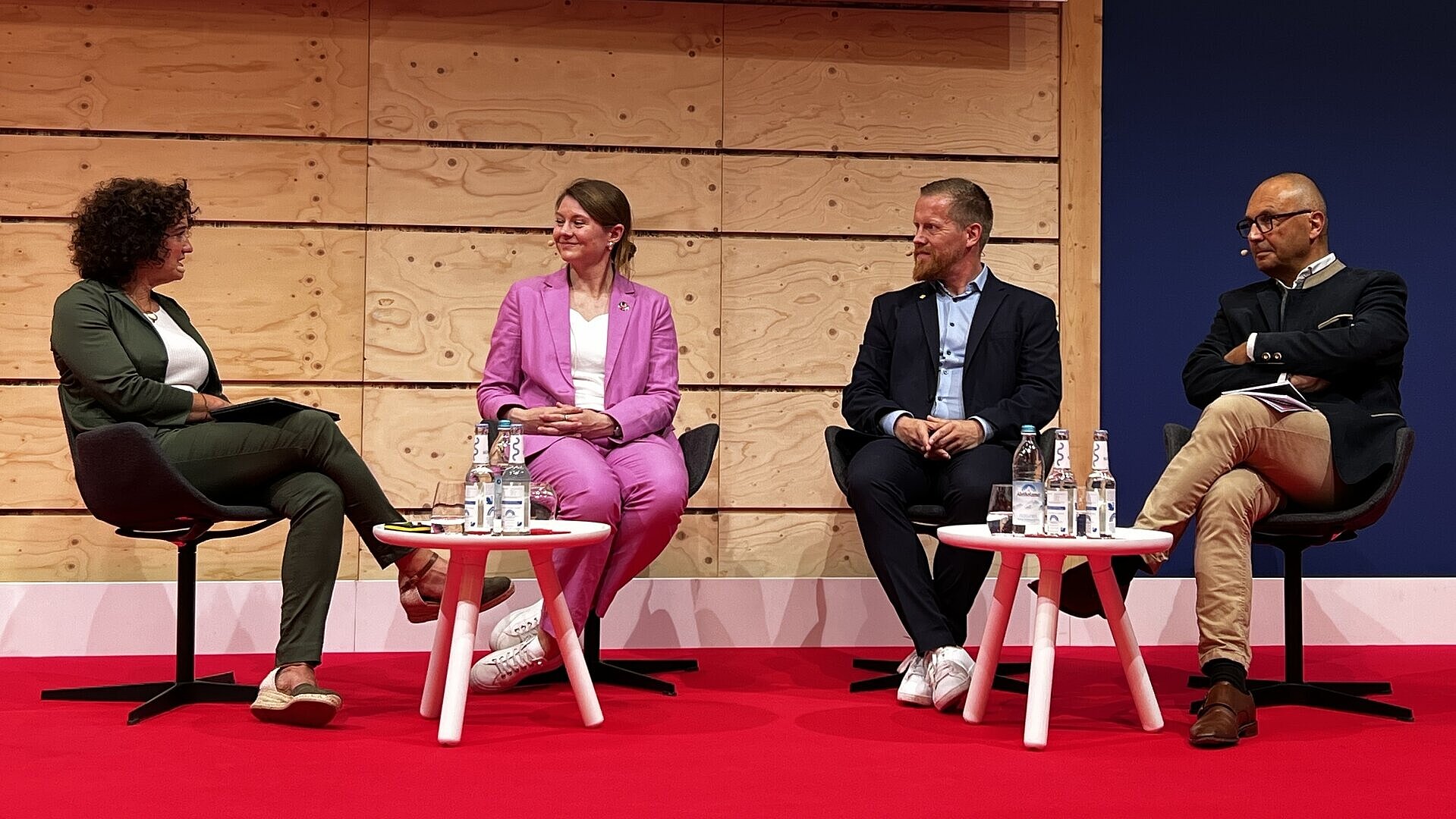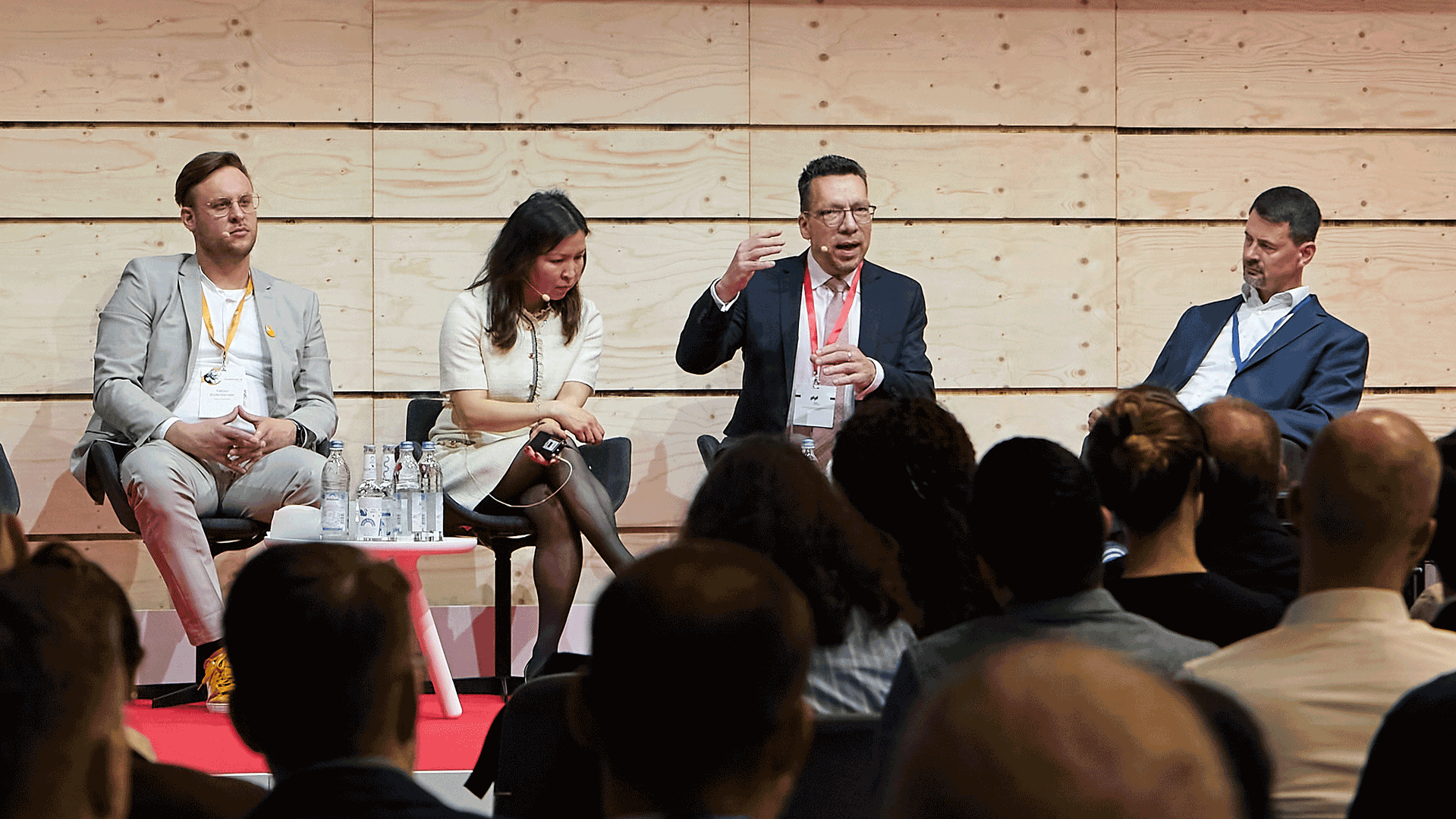
Next Generation Logistics: Germany has some catching up to do

A high degree of digitalisation, artificial intelligence, sharing approaches, platforms and cross-company data streams are keeping the next generation of logistics busy. On Tuesday, a panel discussion organised by the German Transport Forum (DVF), moderated by Matthias Rathmann, addressed the question of what contribution digitalisation, AI and platforms are currently making.
‘If you look at the development in the global markets and the speed at which digitalisation is being driven forward, particularly in China, India and the USA, we are not competitive in Germany today,’ criticises Karsten Keil, Member of the Management Board Vice President Group IT & Digitisation at the Schnellecke Group, and demands: ’We have to really step on the gas again and get ahead. We have the potential, we have highly trained people and companies are willing to invest - we have to make something of it.’
According to Keil, digitalisation often fails due to regulatory requirements, a lack of prerequisites for scaling projects and people's fears. To counteract the latter, the Schnellecke Group has formed working groups and actively promoted the topic of digitalisation.
‘We urgently need to shift into sixth gear,’ says Tobias Jerschke, Chairman of the Management Board at Kühne + Nagel and member of the DVF Executive Committee, with a view to the level of digitalisation in Asia. ‘Nevertheless, we don't need to hide. Germany is still the second most innovative country in the world with 30,000 patents last year.’
As a current example of an AI and digitalisation project in the industry, Jerschke and Ulrich Wrage, CEO of Dakosy, mentioned the Allivate joint venture, which is digitalising the collection process for import shipments at Frankfurt Airport under the name ‘Smart Pick-up’.
However, digitalisation and automation are also being actively promoted in inland shipping, reported Steffen Bauer, CEO of HGK Shipping. Since 2018, the company has been focussing on remote-controlled inland shipping in the fight against the shortage of skilled workers: ‘We now operate nine remote-controlled ships in Europe,’ said Bauer. ‘In Belgium, we are now allowed to operate with one less skipper on the Albert Canal.’
Thomas Zysk, Co-Founder and COO at Swap Innovations, emphasised that the many start-ups in the logistics industry also play a decisive role in innovation and new impetus. The start-up, founded in 2022, has created a load carrier swap community via the ‘LETSSWAP24’ platform. (ab)



